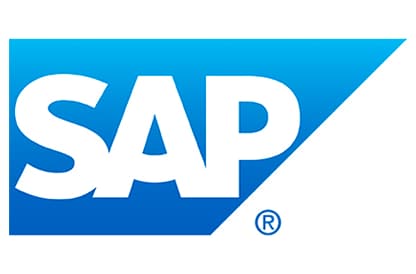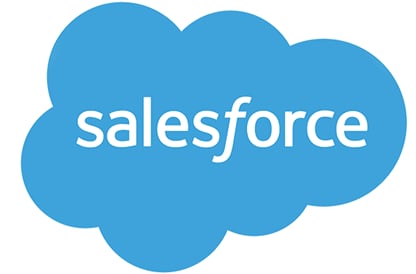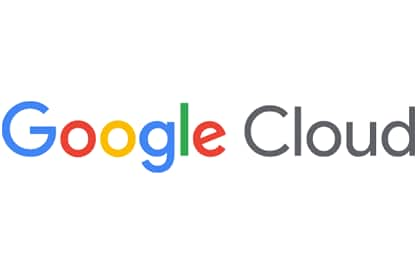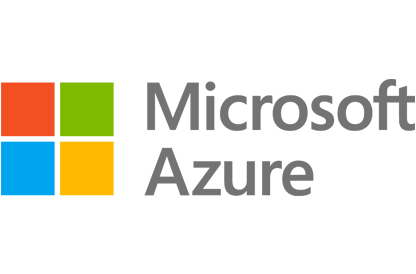Why OpenText
Why OpenText
Overview Why OpenText
OpenText brings decades of expertise to help you unlock data, connect people and processes, and fuel AI with trust
Manage and connect data
Unify data seamlessly across your enterprise to eliminate silos, improve collaboration, and reduce risks
AI-ready information
Get AI-ready and transform your data into structured, accessible, optimized information
Built-in security and compliance
Meet regulatory and compliance requirements and protect your information throughout its lifecycle
Empowering people
Overview Empowering people
OpenText helps people manage content, automate work, use AI, and collaborate to boost productivity
Customers
See how thousands of companies around the world are succeeding with innovative solutions from OpenText
Employees
Our people are our greatest asset; they are the life of the OpenText brand and values
Corporate Responsibility
Learn how we aspire to advance societal goals and accelerate positive change
Partners
Find a highly skilled OpenText partner with the right solution to enable digital transformation
How we compare
Content Management
Service Management
Deploy anywhere
Overview Deployment options
Explore scalable and flexible deployment options for global organizations of any size
Sovereign cloud
Local control. Global scale. Trusted AI
Private cloud
Unlock the value of the cloud while maintaining control and compliance
On-premises
Maintain full control of your data on your own infrastructure
Public cloud
Protect, scale, and use business information in your cloud of choice
AI leadership
Overview Aviator AI
See information in new ways
OpenText™ Aviator™ AI
AI that understands your business, your data, and your goals
OpenText™ MyAviator
Say hello to faster decisions. Your secure personal AI assistant is ready to get to work
OpenText™ Business Network Aviator™
Gain better insights with generative AI for supply chains
OpenText™ Content Aviator™
Power work with AI content management and an intelligent AI content assistant
OpenText™ Cybersecurity Aviator™
Improve your security posture with AI cybersecurity and agile threat detection
OpenText™ DevOps Aviator™
Enable faster app delivery, development, and automated software testing
OpenText™ Experience Aviator™
Elevate customer communications and experiences for customer success
OpenText™ Fax Aviator™
Turn every fax into instant action with AI
OpenText™ Service Management Aviator™
Empower users, service agents, and IT staff to find the answers they need
Aviator AI
Overview Aviator AI
See information in new ways
OpenText™ Aviator™ AI
AI that understands your business, your data, and your goals
OpenText™ MyAviator
Say hello to faster decisions. Your secure personal AI assistant is ready to get to work
OpenText™ Business Network Aviator™
Gain better insights with generative AI for supply chains
OpenText™ Content Aviator™
Power work with AI content management and an intelligent AI content assistant
OpenText™ Cybersecurity Aviator™
Improve your security posture with AI cybersecurity and agile threat detection
OpenText™ DevOps Aviator™
Enable faster app delivery, development, and automated software testing
OpenText™ Experience Aviator™
Elevate customer communications and experiences for customer success
OpenText™ Fax Aviator™
Turn every fax into instant action with AI
OpenText™ Service Management Aviator™
Empower users, service agents, and IT staff to find the answers they need
Analytics
Overview Analytics
Predict, act, and win with real-time analytics on a smarter data platform
Business Network
Overview Business Network
Connect once, reach anything with a secure B2B integration platform
Content
Overview Content
Reimagine knowledge with AI-ready content management solutions
OpenText™ Content Aviator™(AI)
Supercharge intelligent workspaces with AI to modernize work
Cybersecurity
Overview Cybersecurity
Integrated cybersecurity solutions for enterprise protection
OpenText Cybersecurity for SMBs & MSPs
Purpose built data protection and security solutions
OpenText™ Cybersecurity Aviator™(AI)
Reinvent threat hunting to improve security posture with the power of agile AI
DevOps
Overview DevOps
Ship better software—faster—with AI-driven DevOps automation, testing, and quality
Experience
Overview Experience
Reimagine conversations with unforgettable customer experiences
OpenText™ Experience Aviator™(AI)
Transform customer communications with private generative AI
OpenText™ Fax Aviator™(AI)
Turn faxes into workflow-ready data with AI
Legal Tech
Overview Legal Tech
Make smarter decisions with AI-powered legal software and services
OpenText™ eDiscovery
Accelerate eDiscovery with AI-driven speed and precision
OpenText™ Investigation
Optimize strategy with early case assessment and investigation tools
OpenText™ Core Insight
Get smarter eDiscovery with advanced TAR and automated document review
OpenText™ Core Legal Hold
Automate legal holds to eliminate risky and time-consuming processes
OpenText™ Legal Knowledge Management
Unlock knowledge and legal insights across content silos
Observability and Service Management
Overview Observability and Service Management
Get the clarity needed to cut the cost and complexity of IT operations
OpenText™ Service Management Aviator™(AI)
Redefine Tier 1 business support functions with self-service capabilities from private generative AI
APIs
Overview APIs
Build custom applications using proven OpenText Information Management technology
OpenText™ API Services
Build it your way with OpenText Cloud APIs that create the real-time information flows that enable custom applications and workflows
Device and Data Protection
Overview Device and Data Protection
Protect what matters, recover when it counts
Unified Endpoint Management Tools
- OpenText™ Endpoint Management
- OpenText™ ZENworks Suite
- OpenText™ ZENworks Service Desk
- OpenText™ ZENworks Configuration Management
- OpenText™ ZENworks Endpoint Security Management
- OpenText™ ZENworks Full Disk Encryption
- OpenText™ ZENworks Endpoint Software Patch Management
- OpenText™ ZENworks Asset Management
Solutions
Trusted Data & AI
Overview Trusted Data & AI
Secure information management meets trusted AI
OpenText AI Data Platform
A unified data framework to elevate data and AI trust
OpenText™ Aviator™ Studio
A place where you can build, deploy, and iterate on agents in your data's language
OpenText Discovery
A set of tools to help ingest data and automate metadata tagging to fuel AI
OpenText Data Compliance
A suite of services and APIs that make governance proactive and persistent
OpenText Aviator AI Services
Professional services experts who help you on your AI journey
Information Reimagined
Overview Information Reimagined
Get greater visibility and sharper insights from AI-driven information management. Ready to see how?
Knowledge reimagined
Transform daily work with enterprise content management powered by AI
Service Management reimagined
Cut the cost and complexity of IT service management, AIOps, and observability
Connections reimagined
AI-powered B2B integration for supply chain success
Conversations reimagined
Drive value, growth, and loyalty with connected customer experiences
Engineering reimagined
Agile development and software delivery? It only seems impossible
Security reimagined
Cybersecurity for the Enterprise
Decisions reimagined
Unlock insights with AI data analytics
Artificial Intelligence
Overview Aviator AI
See information in new ways
OpenText™ Aviator™ AI
AI that understands your business, your data, and your goals
OpenText™ MyAviator
Say hello to faster decisions. Your secure personal AI assistant is ready to get to work
OpenText™ Business Network Aviator™
Gain better insights with generative AI for supply chains
OpenText™ Content Aviator™
Power work with AI content management and an intelligent AI content assistant
OpenText™ Cybersecurity Aviator™
Improve your security posture with AI cybersecurity and agile threat detection
OpenText™ DevOps Aviator™
Enable faster app delivery, development, and automated software testing
OpenText™ Experience Aviator™
Elevate customer communications and experiences for customer success
OpenText™ Fax Aviator™
Turn every fax into instant action with AI
OpenText™ Service Management Aviator™
Empower users, service agents, and IT staff to find the answers they need
Industry
Overview Industry solutions
Improve efficiency, security, and customer satisfaction with OpenText
Energy and resources
Transform energy and resources operations with cloud, cybersecurity, and AI
Financial services
Boost customer experience, compliance, and efficiency with AI
Government
Reimagine your mission with government-secure information management
Healthcare and life sciences
Improve care delivery and patient engagement with AI-powered solutions
Legal
Modernize legal teams with automated, AI-powered legal tech solutions
Manufacturing
Modernize manufacturing operations and logistics to reduce costs and ensure compliance
Retail and consumer goods
Enhance consumer engagement with omnichannel retail solutions and AI
Enterprise Application
Overview Solutions for Enterprise Applications
Run processes faster and with less risk
Services
Services
Overview Services
Achieve digital transformation with guidance from certified experts
Professional Services
Modernize your information management with certified experts
Customer Success Services
Meet business goals with expert guidance, managed services, and more
Support Services
Turn support into your strategic advantage
Managed Services
Free up your internal teams with expert IT service management
Learning Services
Discover training options to help users of all skill levels effectively adopt and use OpenText products
Professional Services
Overview Professional Services
Modernize your information management with certified experts
Customer Success Services
Overview Customer Success Services
Meet business goals with expert guidance, managed services, and more
Support Services
Overview Support Services
Turn support into your strategic advantage
Managed Services
Overview Managed Services
Free up your internal teams with expert IT service management
Learning Services
Overview Learning Services
Discover training options to help users of all skill levels effectively adopt and use OpenText products
Partners
Find a Partner
Overview Find a partner
Find a highly skilled OpenText partner with the right solution to enable digital transformation
Cloud Partners
Overview Cloud Partners
OpenText partners with leading cloud infrastructure providers to offer the flexibility to run OpenText solutions anywhere
Enterprise Application Partners
Overview Enterprise Application Partners
OpenText partners with top enterprise app providers to unlock unstructured content for better business insights
Partner Solutions
Overview Partner Solutions
Discover flexible and innovative offerings designed to add value to OpenText solutions
Resources for Partners
Overview Resources for Partners
Discover the resources available to support and grow Partner capabilities
Support
Overview Customer Support
Get expert product and service support to accelerate issue resolution and keep business flows running efficiently
Resources
Overview Resources
Explore detailed services and consulting presentations, briefs, documentation and other resources
Choose your region:
Europe, Middle East and Africa
Asia–Pacific
 East Gippsland Water
East Gippsland Water
Australian Water Corporation slashes time taken to search myriad data types and reduces storage costs with ControlPoint

Products and services
Outcomes
- Reduced the time taken to find records, from hours to seconds
- Decreased the corporation’s data footprint by 30 percent, slowing growth in storage costs
- Identified an additional 10 percent of its data that should be stored in a record-keeping system, preventing unauthorized access and accidental deletion
- Allowed automated management of records, saving time and lowering the risk of noncompliance
- Improved information access for executives, saving time when preparing budgets
Challenge
Reduce time to find records and ensure compliance with privacy laws and data regulations.
Before 2015, East Gippsland Water faced a scenario familiar to many businesses and government bodies around the world—a growing volume of data, rising storage costs, and difficulty finding information quickly.
Locating information involved searching network and desktop drives. This included numerous hours spent sifting through documents created in previous decades by several other water corporations and shire councils, which later merged with East Gippsland Water.
Although the corporation had used OpenText™ (formerly Micro Focus) Content Manager since 2009 to store and protect important records, it didn’t know if there was other data valuable to the organization that wasn’t being protected. A lot of data hadn’t been identified, says Iain McDougall, East Gippsland Water’s Manager of Information and Technology. “Half of the data wasn’t known. There was data everywhere,” he says.
Important records were stored in spreadsheets, databases, and other ways, but they could also be buried within email conversations or in audio recorded during presentations. These files used valuable storage space, even though it wasn’t necessary to keep them all.
One person was responsible for finding important information within all this data—a task that could take up to half a day. When important information was found, there was no easy way to protect it from accidental deletion or from unauthorized access. East Gippsland Water also didn’t have a way to quickly supply information in response to freedom of information requests.
The lack of a digital content management system was hampering day-to-day operations. East Gippsland Water uses nine separate water supply systems and delivers services over an area larger than 8,000 square miles. This requires careful management of pipes, wastewater infrastructure, and treatment plants valued at millions of dollars. The corporation must also plan for environmental change to ensure reliable water supplies in the future, and takes part in projects aimed at reducing landfill and achieving other environmental goals. It must also provide five-year budgets to the government. To achieve this, it needs easy, rapid access to information.
All this must be achieved while keeping water and sewerage bills as low as possible for tens of thousands of residents. This places pressure on East Gippsland Water to operate efficiently.
Details
Solution
East Gippsland Water turned to information governance integrator FYB, which recognized the need for a method of easily applying record-keeping policies across myriad data types. It needed to shed light on the unknown data—sometimes called dark data. A solution was needed to analyze the contents of the dark data to determine what was no longer needed and what should be kept.
FYB recommended ControlPoint for this data discovery project. This solution is capable of analyzing more than 1000 different content formats, including shared network drives, SharePoint files, Microsoft Exchange repositories, images, audio, video, and social media.
As well showing what sensitive information East Gippsland Water was storing, ControlPoint streamlined the task of protecting it. The software understands context within documents, allowing it to automatically decide whether to keep or delete data. In this way, East Gippsland Water could identify important information in a fraction of the time it would have taken to manually search each network drive.
Another potentially time-consuming task was securing and keeping track of important information. ControlPoint simplified this job by automatically moving this data to the recordkeeping solution, Content Manager (formerly Records Manager).
It is now much quicker to find information. Instead of taking hours to search network drives, employees can type in keywords and find a record within seconds. They can search by categories of records, or apply weighting to different words in the search to fine-tune the results. Searches are also repeatable, providing another way to save time.
It manages the complete process. This just wasn’t possible with previous systems we had.
Results
For East Gippsland Water it is now much quicker to find information. Instead of taking hours to search network drives, employees can type in keywords and find a record within seconds. They can search by categories of records, or apply weighting to different words in the search to fine-tune the results. Searches are also repeatable, providing another way to save time.
Another of ControlPoint’s features is the ability to show what proportion of an organization’s data is redundant, obsolete, or trivial. A dashboard displays how much data falls into each of these categories, and the disk space that could be saved by deleting it.
This had a direct financial payoff for Gippsland Water. By using ControlPoint to identify data that could be deleted, the corporation was able to reduce its data footprint by 30 percent. This allowed it to postpone the purchase of additional storage hardware.
Identifying important information was only half the battle—sensitive data such as contracts also had to be protected. This was critical if East Gippsland Water was to avoid falling foul of privacy laws and other data regulations.
Using ControlPoint, the corporation has identified another 10 percent of its data that should be stored in a record-keeping system. Once they are stored within Content Manager, policies can be set on the period the data should be kept for and when it should be automatically deleted. East Gippsland Water can also block users from accessing records if they don’t have authorization. McDougall also points out that digital records systems are not subject to human bias.
McDougall expects even more important information to be identified over time. “As we get better at the process, that 10 percent might increase,” he says.
The data clean-up has also improved employees’ awareness of how to safely store records. For example, the corporation discovered password-reset emails that hadn’t been deleted. It then used this information to educate employees about proper procedures. Having better access to data also helped at an executive level. “It brought clarity to the executive team about what’s going on from a compliance and management aspect,” says McDougall.
One of the advantages of using ControlPoint, says McDougall, is its ability to perform three major data clean-up steps: finding important data, collecting and classifying that data, and managing it in conjunction with Content Manager. “It manages the complete process. This just wasn’t possible with previous systems we had,” McDougall says.
About East Gippsland Water

East Gippsland Water is a government corporation that supplies water services to 25,700 customers, and wastewater services to 21,900 customers in the Australian state of Victoria. It services thousands of square miles, as well as managing millions of dollars of water treatment plants and other facilities. It was created in 1995 and is overseen by the Minister for Water.





